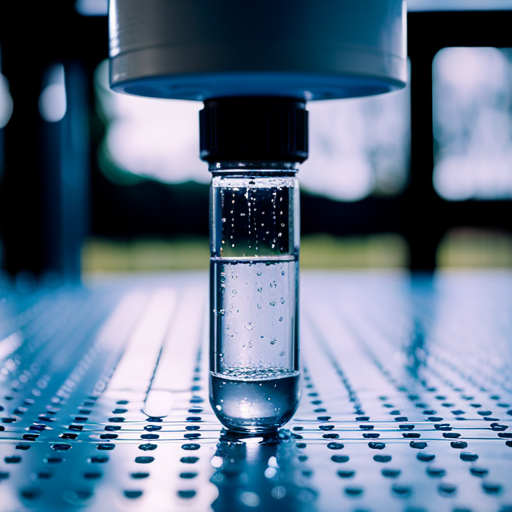Category: PFAS
-

New Brita Filter Removes 11 Pfas – Purefast
Are you concerned about the quality of your drinking water? If so, you’re not alone. Many people are worried about the presence of PFAS, or per- and polyfluoroalkyl substances, in their tap water. These chemicals have been linked to a variety of health problems, including cancer, thyroid disease, and developmental issues in children. Fortunately, a…
-

Eliminating Pfas From Drinking Water: Top Technologies
Are you concerned about the presence of PFAS in your drinking water? These per- and polyfluoroalkyl substances can have serious health effects, ranging from cancer to liver damage. Fortunately, there are treatment technologies available to remove PFAS from your water supply. In this article, we will explore the top technologies for eliminating PFAS from drinking…
-

Is Your Favorite Soda Contaminated With Pfas?
Do you love sipping on a cold can of soda on a hot summer day? Well, you may want to think twice before taking another gulp. With rising concerns over the potential presence of PFAS in soft drinks, you may be unknowingly consuming harmful chemicals. PFAS, or per- and polyfluoroalkyl substances, are human-made chemicals used…
-

Bottled Water And Pfas: Know The Risks!
Are you concerned about the quality of your drinking water? Lead contamination can be a serious health issue, but fortunately, there is a solution: faucet filters. In this ultimate guide to faucet filters, you’ll learn everything you need to know about selecting the right one for your home. First, we’ll explore the basics of filtration…
-

Pfas In Food: A Growing Contamination Concern
Do you know what’s in your food? It’s a question that many people are starting to ask themselves as the concern for PFAS contamination in our food system grows. PFAS, or per- and polyfluoroalkyl substances, are man-made chemicals that can be found in a variety of products, including non-stick cookware, water-resistant clothing, and some food…
-

Pfas In Tilapia: What You Need To Know!
Are you concerned about the safety of the food you eat? If so, you may want to pay attention to the growing concern over PFAS contamination in food and water. PFAS, or per- and polyfluoroalkyl substances, are a group of man-made chemicals that have been linked to a range of health problems, including cancer, thyroid…
-

Pfas In Cod Fish: Health Concerns & Contamination
Are you a fan of cod fish? It might be time to reconsider your love for this popular seafood. Recent studies have found that wild caught cod is contaminated with per- and polyfluoroalkyl substances (PFAS), manmade compounds that have been linked to serious health concerns. In fact, the FDA tested samples of wild caught cod…
-

Shocking: Pfas Found In Shrimp! 😱🍤
You’ve likely heard of PFAS, the toxic chemicals that have been found in our drinking water and in certain foods. But did you know that the latest FDA testing has found PFAS in shrimp? That’s right, one of America’s favorite seafood options has been contaminated with these harmful chemicals. This news may come as a…
-

Pfas In Fish Sticks: Surprising Fda Results
You love fish sticks. They’re easy to make, taste great, and are a staple in many households. But did you know that they may contain a group of man-made chemicals called PFAS that have been linked to serious health concerns? Recent testing by the FDA found PFAS compounds in fish sticks, and while the concentrations…
-

The Truth About Pfas In Canned Tuna 🐟🚫
Do you enjoy eating canned tuna? Well, you may want to think twice before taking a bite. Recent tests conducted by the FDA have found that canned tuna samples contain PFAS, a group of man-made chemicals that can enter the food supply through contaminated water, soil, or air. These chemicals have been linked to health…
